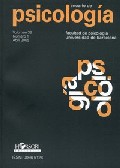Virtual reality exposure therapy for school phobia
Resum
School phobia is characterized by fear to diverse events associated to school such as being beaten by a classmate, bullied or criticised in front of the lass, having to speak in public, doing exams, getting undressed to practice sports, etc. and can frequently cause young children to a chronic school refusal leading to significant social and academic difficulties. In older children and adolescents, the risk of a low school performance and an early school dropout is increased. Diverse techniques of graded and non-graded exposure have been used in the treatment of this problem. In vivo exposure alone or preceded by imagery exposure is the treatment more frequently applied. Clinical practice with children suggests the use of behavioural procedures requires a considerable amount of flexibility and creativity and procedures that warrantee their comprehension and cooperation. techniques based on virtual reality address these requirements and are capable of increasing the motivation of children to participate in treatment. In line with this, our group of research has developed a series of virtual environments that can be integrated to a treatment program for children and adolescents with school phobia. To study its efficacy, 18 participants with high scores on school phobia measures were randomly assigned to a group of treatment whereas other 18 participants were assigned to a waiting list group. A specific treatment effect on schoolrelated fears was found suggesting that exposure by means of virtual environments might be an effective treatment for school phobia.Descàrregues
Publicades
2009-12-02
Número
Secció
Dossier: Evaluación y tratamiento psicológico mediante realidad virtual y otras nuevas tecnologías
Llicència
El/la autor/a que publica en esta revista está de acuerdo con los términos siguientes:
El/la autor/a cede en exclusiva todos los derechos de propiedad intelectual al/la editor/a para todo el mundo y toda la duración de los derechos de propiedad intelectual vigentes aplicables.
El/la autor/a puede difundir una copia de sus artículos respetando la política de acceso libre de la revista.


